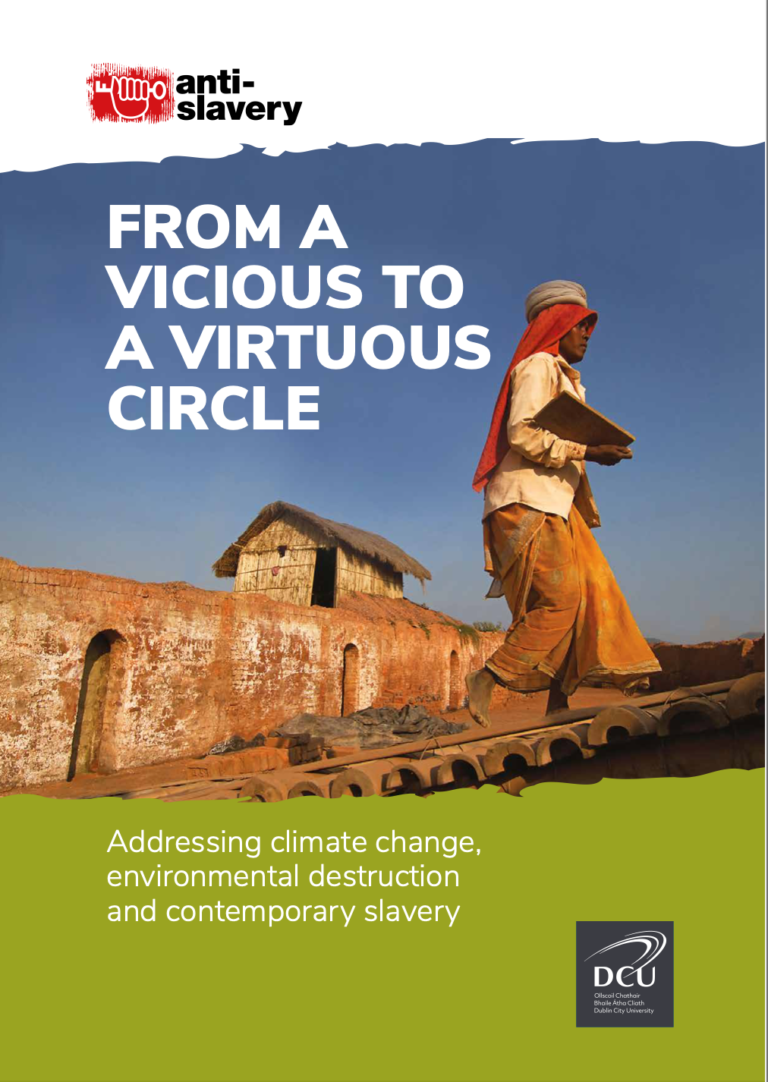Right now, climate change is negatively affecting many of the most vulnerable people in the poorest countries in the world. A combination of sudden-onset disasters and slow-onset events are having a destabilising effect on urban and, in particular, rural communities. In many parts of the world the effects of climate change are exacerbated by economic activities that cause environmental degradation. Together these factors worsen pre-existing socio-economic vulnerabilities, deepen exclusion and marginalisation, drive displacement and migration, and heighten the risk of contemporary slavery for children and adults.
Covid-19’s devastating impact is also deepening economic and social inequalities, driving millions of people into situations of vulnerability and exploitation, including human trafficking, forced labour and debt bondage. These crises need to be tackled together to make sure that people who are made vulnerable to contemporary forms of slavery have the social protections and working conditions they need to lead their lives in dignity.

